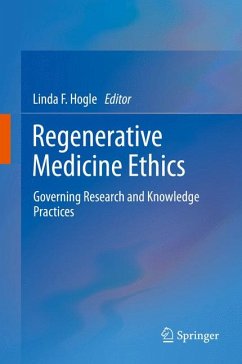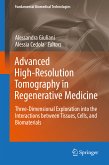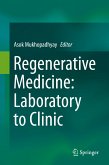The contributors address these and other vital questions through chapters focusing on topics such as data sharing; patenting of human biological material; and managing collaborations across academic, industry and government sectors as well as across national boundaries. Key research ethics issues are also included such as obtaining consent from biospecimen donors; accessing biorepository data, and considerations in designing preclinical and clinical trial protocols for first-in-human research, including upcoming policy changes.
Rather than retracing well-trodden topics, the book points to nascent areas that need to be addressed. Whether working in academia, industry, or government, regenerative medicine scientists and managers need to know how to navigate current and upcoming issues of governance facing the field. Regenerative Medicine Ethics:Governing Research and Knowledge Practices will be a valuable resource for scientists, policy-makers and students as they plan and execute responsible research.
About the Editor
Linda F. Hogle is Professor of Medical Social Sciences in the School of Medicine & Public Health at the University of Wisconsin-Madison and Fellow at the Wisconsin Institutes for Discovery. Her research includes analyses of social, ethical, and legal issues in emerging cell-based and biomedical engineering technologies, as well as concepts of risk in innovative science as understood by governance bodies. She has served as an advisor to several international research consortia focusing on stem cell and regenerative medicine.
Dieser Download kann aus rechtlichen Gründen nur mit Rechnungsadresse in A, B, BG, CY, CZ, D, DK, EW, E, FIN, F, GR, HR, H, IRL, I, LT, L, LR, M, NL, PL, P, R, S, SLO, SK ausgeliefert werden.
"The book will appeal to ethicists and college professors who are interested in research ethics and/or ethical, legal, and social implications (ELSI) projects. The book also will be useful to a variety of students interested in law and bioethics, or who are planning to conduct RMR. ... this book provides many interesting insights into RMR, and those in the intended audience likely will find it to be useful, relevant, and thought provoking." (Joseph T. Norris, Doody's Book Reviews, September, 2014)









